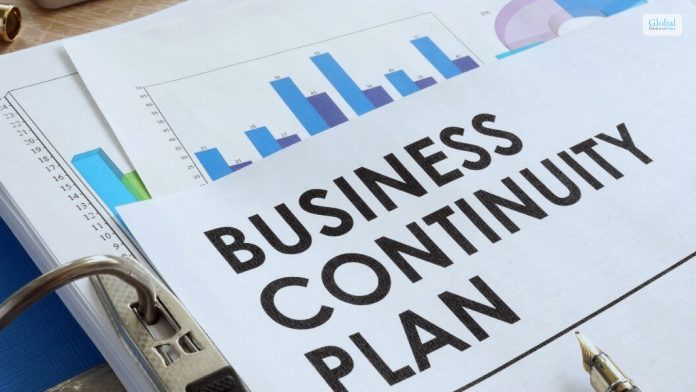Business Continuity Plan – What Is It, And How Does It Work?

Your business can come across a disaster or a host of negative situations for the business, which negatively affect the work processes of the business. In such cases, business continuity planning is one of the most necessary things to have. A business continuity plan will enable you to stay prepared for any kind of negative situation for the business. This shall further ensure that the business is able to work the same.
In this article, you will learn about a business continuity plan and what are its major features. In addition to that, you will also learn how a business continuity plan works for a business. Furthermore, we will also discuss the major benefits of having a business continuity plan for your business. Finally, we will guide you with a step-by-step procedure on how to create such a plan for your business and stay prepared.
What Is A Business Continuity Plan?
According to Hubspot.com,
“A business continuity plan outlines directions and procedures that your company will follow when faced with a crisis. These plans include business procedures, names of assets and partners, human resource functions, and other helpful information that can help maintain your brand’s relationships with relevant stakeholders.”
The major goal of a business continuity plan is to deal with the situations that disrupt the business. These disruptions can be both minor and full-blown threats. The plan allows you to plan for contingencies ahead of time.
Such plans, as well as preparations according to those plans, can allow your business to continue operations even at times of high risk. Having a plan will help you to deal with the risks and either prevent or mitigate them.
Some of the major disruptions that can affect the business include a natural disaster, a man-made disaster, a network breakdown, a cyber attack, and various other factors. These situations are large enough to disrupt organizations of any size. In such situations, a business continuity plan benefits the business by providing it with a procedure, processes, and tools. These will help the business to operate properly and recover within a short span of time.
Read More: What Is a Franchise, And How Does It Work? – Examples, Benefits & More
How Does A Business Continuity Plan Work?

According to VMWare.com,
“Business continuity planning is critical because without it, an organization faces downtime and other problems that could damage its financial health. In major disasters, a lack of a business continuity plan could cause irreparable financial harm that might ultimately force a company to permanently close.”
In a business continuity plan, the business defines all the risks that can affect the operations of the organization. Hence, the plan becomes an important part of the risk management processes of the business. Some of the major risks include disasters, network breakdowns, cyberattacks, and more.
Since threats and disruptions include a loss of revenue and higher costs for the business, it can lead to a loss of business profits. Furthermore, it is also not a great thing for your business to rely on insurance alone. Also, since the business does not cover all the necessary costs, as well as the ones associated with customers, a business continuity plan is necessary to deal with such situations.
What Are The Benefits Of Having A Business Continuity Plan?
The disasters in a business can be of any size and degree and can even be catastrophic for the business. Hence, a business continuity plan is one of the most essential things you can have for your business. The plan will help you to identify all the major risks that can affect the work processes of your company.
According to Investopedia,
“BCP is typically meant to help a company continue operating in the event of threats and disruptions. This could result in a loss of revenue and higher costs, which leads to a drop in profitability. And businesses can’t rely on insurance alone because it doesn’t cover all the costs and the customers who move to the competition.”
The following are some of the major benefits of a business continuity plan:
- It helps to continue operating even in times of disaster. However, it is different from a disaster recovery plan.
- Helps in improving risk management of the company.
- It can stop disruptions in the organization from spreading.
- Helps to mitigate downtime of business technology and networks.
- It helps to save a lot of money, time, and resources.
Business Continuity Plan – Steps To Create

Here are some of the major steps you will need to follow if you want to create a business continuity plan:
1. Business Impact Analysis
According to Investopedia,
“An important part of developing a BCP is a business continuity impact analysis. It identifies the effects of disruption of business functions and processes. It also uses the information to make decisions about recovery priorities and strategies.”
Here, your business managers will need to identify the functions of the plan as well as related resources for the business, especially the ones that are sensitive to time.
2. Recovery
In this portion of the plan, the planner will need to identify the steps and implement them. This will include the steps for recovery as well.
3. Continuity Team
You will need to create a continuity team here. The job of the team will be to devise a plan to manage the disruption of the plan.
4. Continuity Training
You will need to train and test the continuity team here. The members of the team will also need to complete various exercises for the application of the plan.
Read More: Intrapreneurship – Definition, Importance, Duties, And Responsibilities
Summing Up
Hope this article was helpful for you in getting a better idea of what a business continuity plan is and how it can allow your organization to recover quickly from disasters or, in the best cases, prevent them. The plan is a great option to keep your personnel prepared, save your assets, and ensure the business starts functioning fast.
However, you will need to test your business continuity plan from time to time to ensure that there are no gaps in it. To find out gaps, you can create dummy situations or drills with your employees. Do you have any more recommendations on how to create the best business continuity plan? Share your ideas with us in the comments section below.
Read Also:













